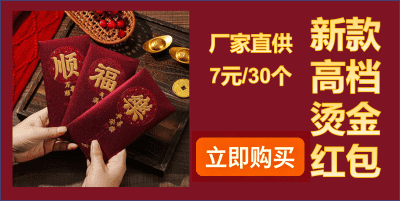春节回家都要送礼吗英文

春节的英文单词是什么
The English word for \"春节\" is Spring Festival. Spring Festival is the most important traditional Chinese festival, celebrated on the first day of the Chinese lunar calendar. During the Spring Festival, Chinese people engage in various customs and traditions to welcome the new year and wish for good luck and prosperity.
春节用英语怎么说?
In English, we say \"春节\" as \"Spring Festival\". For example, we can use the sentence \"Today we are all together for the Spring Festival\" to express that we are gathering for the celebration of the Spring Festival. Spring Festival is a time when families come together, enjoy festive meals, exchange gifts, and participate in cultural activities.
春节用英语怎么说?是NEW YEAR吗?
春节 in English is translated as \"Spring Festival\" rather than \"New Year\". While the Spring Festival marks the beginning of the Chinese lunar calendar year, \"New Year\" usually refers to January 1st, known as \"New Year\'s Day\". It is important to distinguish between the two terms to avoid confusion.
“要送礼物吗?”用英语怎么说?准确点儿
To ask whether we should give gifts, we can say \"Should we give gifts?\" or \"Is it necessary to give gifts?\". It\'s common to exchange gifts during the Spring Festival as a gesture of goodwill and to strengthen relationships. Giving gifts allows us to show our care and appreciation for others, and it adds to the joyous atmosphere of the festival.
gift和present区别哪个可以指金钱
When it comes to the difference between \"gift\" and \"present\", both words can be used to refer to giving something as a present, but \"present\" is considered slightly more formal. On the other hand, \"gift\" can also mean \"endowed\" or \"innate\". For example, we can say \"He was gifted with a good voice\" to express that he has a naturally good singing ability. However, when it comes to giving monetary gifts, either \"gift\" or \"present\" can be used interchangeably.
英语翻译春节是中国人最重视的节日.假如你不知道买什么礼物...
The English translation of \"春节是中国人最重视的节日\" is \"Spring Festival is the most important festival for the Chinese people\". During the Spring Festival, choosing the right gift can be a challenge, especially if you are unsure of the recipient\'s preferences. In such a situation, it is always thoughtful to consider gifts that reflect Chinese culture, such as red envelopes with money (symbolizing good luck), traditional handicrafts, or festive decorations. These gifts not only showcase the rich heritage of Chinese traditions but also convey sincere wishes for happiness and prosperity.
春节用英语怎么说?有没有the?
The correct way to say \"春节\" in English is \"Spring Festival\". While the definite article \"the\" is not required when referring to the Spring Festival in general, it can be used in specific contexts. For example, we can say \"I love celebrating the Spring Festival with my family\" to emphasize a particular instance of the festival.
春节的英文怎么写?
The English translation of \"春节\" is \"Spring Festival\". Additionally, it can also be translated as \"Chinese New Year\" or \"Lunar New Year\". These terms are proper nouns and should be capitalized. It is optional to use the definite article \"the\" before these terms, depending on the context.
“回家过年”的英文怎么说?
The English translation for \"回家过年\" is \"Go back home to celebrate the Spring Festival\". During the Spring Festival, many people living in urban areas travel back to their hometowns to reunite with their families and spend quality time together. This tradition signifies the importance of family bonds and the joy of being together during this festive season.
英语中送礼和收礼时要说的话
When giving a gift, we can express our thoughts by saying \"It\'s my pleasure to give you this as a gift. Hopefully, you will like it.\" This conveys a sense of happiness and willingness to share joy with the recipient. On the other hand, when receiving a gift, it is appropriate to say \"Thank you. I like it\" or \"Thank you so much for the gift. It\'s very thoughtful.\" These expressions show gratitude and appreciation for the gesture.



